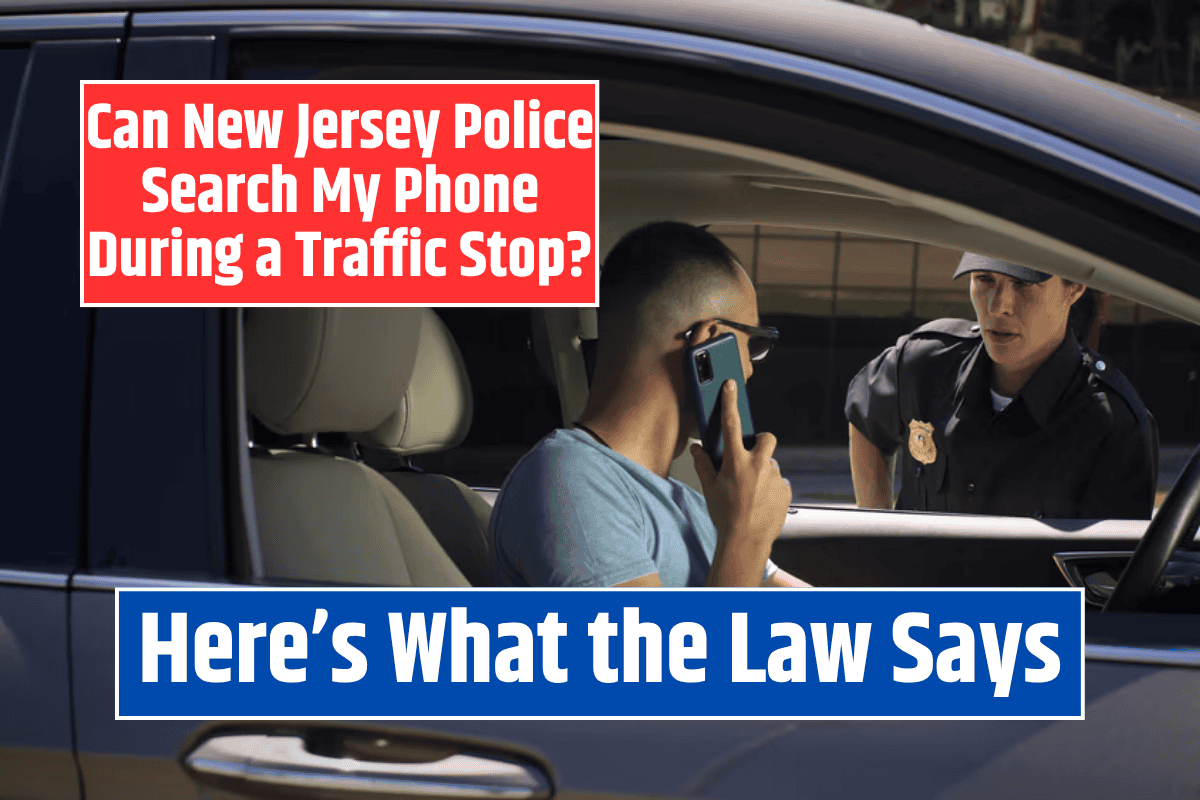Many people wonder if police can check their phones during a routine traffic stop. In today’s digital age, our phones hold a lot of private information—messages, photos, emails, and more. So, it’s important to know your rights if you ever find yourself in this situation in New Jersey.
This article explains what the law says about phone searches, when police can access your data, and what you should do to protect your privacy.
Your Rights Under the Fourth Amendment
The Fourth Amendment of the U.S. Constitution protects people from “unreasonable searches and seizures.” This means police usually need a warrant to look through your personal property, including your phone.
In 2014, the U.S. Supreme Court decided in a case called Riley v. California that police must get a warrant before searching someone’s phone—even if that person is under arrest. The court said phones hold private digital information, and accessing it without permission is a serious privacy issue.
New Jersey’s Strong Digital Privacy Laws
New Jersey takes digital privacy seriously. In a 2013 case called State v. Earls, the New Jersey Supreme Court said police must get a warrant to track someone’s phone location. This decision shows that New Jersey offers strong protections against illegal phone searches.
The law in New Jersey is clear: even in serious cases, like criminal investigations, police need to follow the proper legal steps before going through your phone. That includes getting a warrant from a judge.
When Can Police Legally Search Your Phone?
Most of the time, police cannot check your phone unless they meet specific legal requirements. Here are the main situations when a phone search might be allowed:
With a Warrant
The safest and most common way for police to search your phone is with a warrant. A judge must approve the warrant, and it should clearly state what parts of your phone police can look at—like messages or call history.
Exigent Circumstances (Emergency Situations)
If there’s an emergency—like a missing child—and police believe your phone holds information that can prevent harm or a crime, they might search it without a warrant. But they must prove that there was a real emergency, and courts often review these cases closely.
If You Give Consent
If you say “yes” and let the police search your phone, they don’t need a warrant. But you’re never required to give permission. Keep in mind, anything they find can be used against you in court.
If You’re Arrested (But Still Limited)
If you’re arrested, police can take your phone—but they can’t go through it without a warrant. The Supreme Court’s ruling in Riley v. California protects your digital data, even during an arrest.
Police might see your phone’s lock screen notifications, but they can’t open apps, messages, or files without permission from a judge.
What You Should Do If Police Ask to Search Your Phone
If you’re pulled over or stopped by police and they ask to search your phone, here’s what you should do:
Stay calm and respectful. Arguing or resisting can make things worse.
Ask clearly if they have a warrant.
If they don’t, say politely, “I do not consent to a search.”
Do not unlock your phone or give them your password.
If things get serious, ask for a lawyer right away.
Write down or remember details of the stop, like the officer’s name and badge number.
Call a criminal defense lawyer as soon as possible.
Why You Should Talk to a Lawyer
Digital privacy is a serious matter. If police search your phone illegally, a criminal defense attorney can help protect your rights. An experienced lawyer can:
Make sure any illegally collected evidence is thrown out of court.
Hold the police accountable for breaking the law.
Help defend you if you’re facing charges based on an unlawful search.
Give you solid legal advice based on New Jersey laws.
If you’re in New Jersey and worried about a phone search, it’s always best to speak to a lawyer who understands digital privacy laws in the state.
Knowing your rights can make a big difference. In New Jersey, the law is clear—police usually need a warrant to search your phone. There are a few exceptions, like emergencies or if you give permission, but in most cases, your digital privacy is protected.
If you’re ever unsure or feel your rights were violated, contact a criminal defense lawyer right away. Your phone holds a lot of personal information, and the law is on your side to keep it private.












